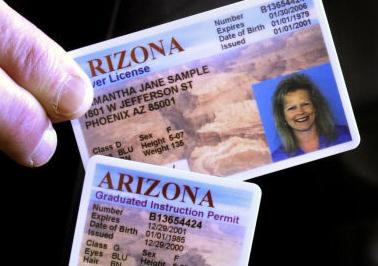PHOENIX — Arizona transportation officials say they’re not sharing your driver’s license photo with federal agencies, a practice that apparently is occurring in other states.
The Arizona Department of Transportation does use “facial recognition software,” department spokesman Tim Tait acknowledged Monday. This essentially digitizes a photo into data to allow it to be compared with other pictures.
But Tait said this is strictly for internal use, designed to ensure that people who already have a license in Arizona do not try to get another one.
He did say that ADOT will respond to requests for information — and facial recognition data —from federal and state law enforcement agencies. But there are restrictions, such as it has to come from an agency that has “a specific law-enforcement request.”
“So they have to tell us why they’re interested in it,” Tait said. “It can’t just be a willy-nilly request.”
He said, though, if an agency shows up with a court order, that trumps everything and ADOT will provide the information without further questioning.
The issue arises following published reports that Immigration and Customs Enforcement agents are “mining” millions of driver’s license photos from three states, Utah, Vermont and Washington, for possible facial recognition matches.
The New York Times said this appears to be aimed mostly at states that offer driver’s licenses to undocumented immigrants. The paper said documents obtained by Georgetown Law’s Center on Privacy and Technology found that ICE used facial recognition technology to scan the databases, which also include photos of citizens and legal residents.
ICE spokesman Matt Bourke told National Public Radio it “will not comment on investigative techniques, tactics or tools,” saying the agency has the ability to collaborate with other local, federal or international agencies “to obtain information that may assist in case completion and prosecution efforts.”
Tait said he does not know whether ADOT has fielded any specific requests from ICE. But he said it is unlikely the federal agency sees Arizona records as useful since the state does not issue licenses to people not in this country legally.
Arizona was ordered by a federal court to license those in the Deferred Action for Childhood Arrivals program, which allows those who came to this country illegally as children to remain and work. But Tait pointed out that ICE already has records of those people, as they had to register for DACA.
As to other federal agencies, Tait said ADOT does not just open up its files. “They have to articulate the ‘what,’ the ‘why’ and the ‘who’ in order for us to run the request,” he said.
“There’s no blanket requests and no one has open-ended access to the system,” Tait continued. “Each request is evaluated independently and individually.”
He also stressed that the use of the facial recognition software to prevent people from getting duplicate licenses is Arizona specific. He said the photos taken here are not shared with other states to determine if someone is licensed elsewhere.
“To my knowledge, these are not linked across states,” Tait said.
He said the rules are no different for the Real ID-compliant license documents that Arizonans can acquire. These are similar to regular state-issued licenses but will be accepted by the federal Transportation Security Agency to allow Arizonans to board aircraft after next year without a passport.
The only difference, Tait said, is that applicants have to provide additional documentation to prove not just identity but also their address. But he said the photos taken for these Real ID-compliant licenses also are not routinely shared with TSA or other federal agencies.





